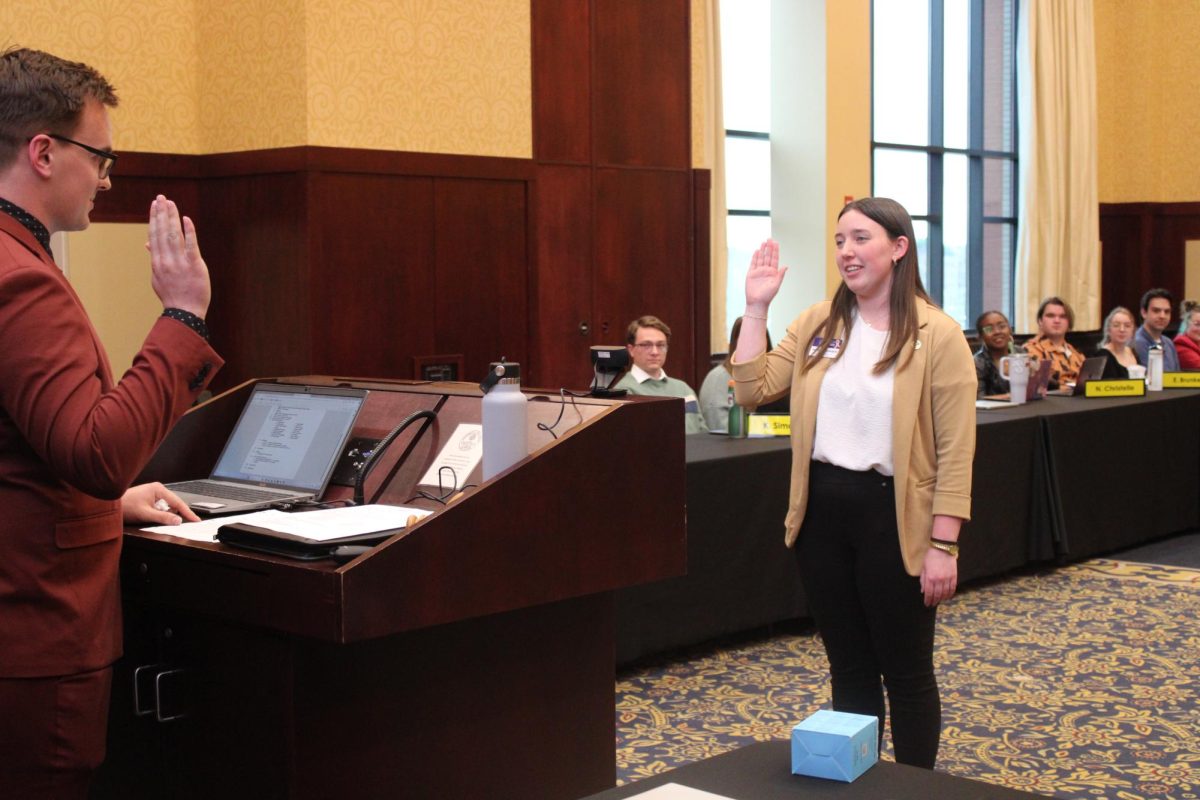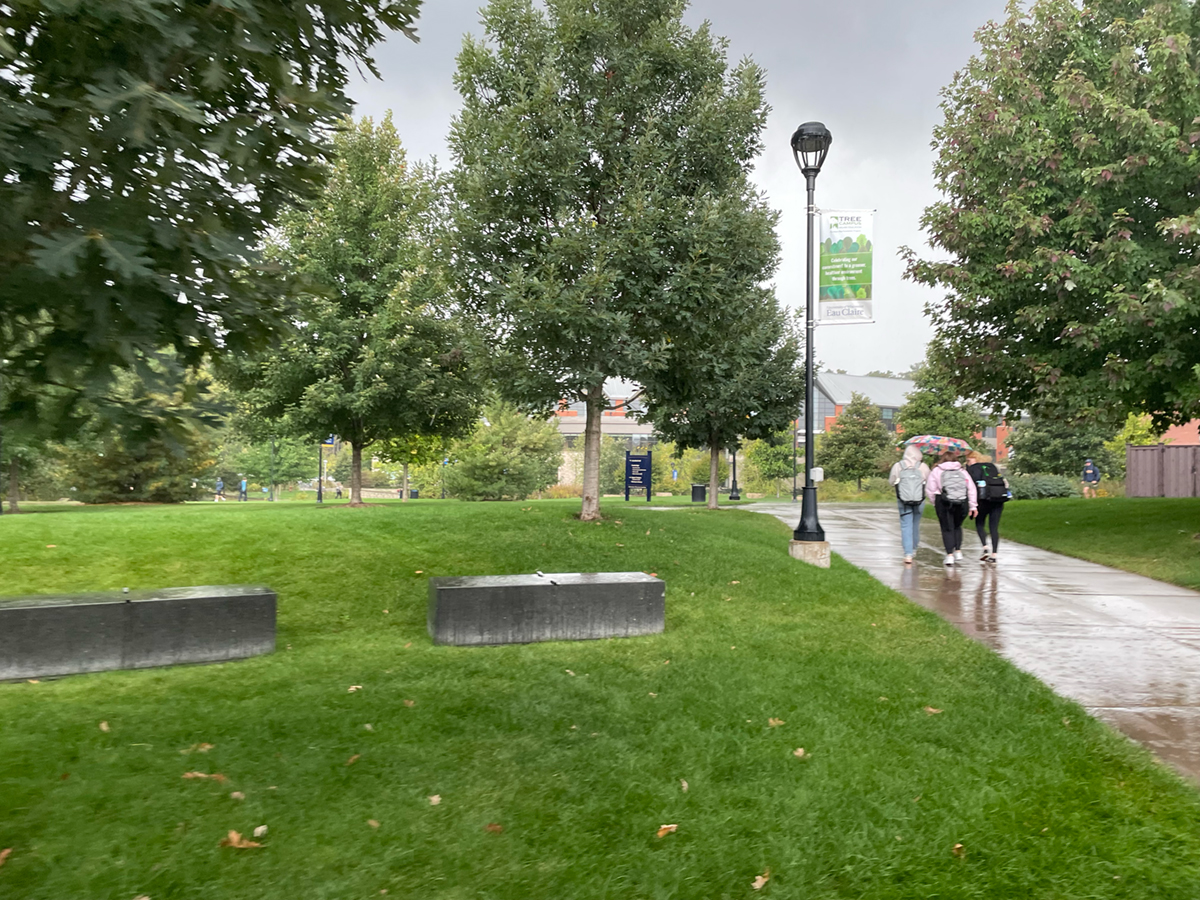As finals loom, Student Senate discussed academic dishonesty Monday during a time when students are under intense academic pressure.
Before Senate put the wraps on its semester, University Senate chairwoman Susan Harrison and Associate Dean of Students Bob Shaw asked Senate about its perspective of cheating on campus.
Senator junior Ryan Lloyd said he’s heard of students cheating via cell phone text messaging during tests, but not at UW-Eau Claire.
“You can imagine how easy it would be to text message answers to other people in lecture halls,” Lloyd said.
His friend’s brother, a Purdue University student, was caught using text messaging during a calculus final and Lloyd said he was suspended.
A group of faculty members have discussed academic misconduct during this year, Harrison said, and will begin circulating a survey next semester for students and faculty on the issue.
“There are varying ideas of what should be reported and not reported,” said Harrison, an associate professor of computer science. “We’re finding out faculty on campus don’t know what the rules are.”
The proper course of action when an instructor spots cheating, Harrison said, is to confront the student one-on-one and then decide on further consequences that could include a written reprimand, redoing the assignment, getting a zero grade on it or in severe cases – expulsion.
“I’ve known students who’ve (cheated),” Senate parliamentarian senior Matt Flaten said.
When he’s heard about the consequences of plagiarism and other forms of cheating, Flaten said instructors are varied in their methods of punishment.
Some make the student retake the test, while others would give cheaters failing grades on tests, he said.
To be consistent, Flaten said procedures for dishonesty need to be explicitly stated.
“I think it’s important the university has a firm policy on it in all cases,” he said.
Harrison said the survey and discussions are intended to yield a clear policy on what dishonesty is and how it should be dealt with on campus.
After 20 minutes of discussion on dishonesty, Senate did little debating as it passed legislation for the remaining hour of its meeting.
Senate agreed unanimously to change the student insurance policy for the next academic year by raising the deductible from $200 to $400 for major medical coverage and lowering premiums by $10.
The bill Senate passed guarantees a maximum rate increase of 13 percent in the 2005-06 academic year, and extends the current contract another year.
The bill stated that 2003-04 was the worst year for claims and resulted in a large net loss to Columbian Life, the company that supports the student insurance program.
Since it was the last meeting of the academic year, Senate approved two bills that had not previously been introduced, thereby suspending rules requiring a week’s review of legislation before it can be voted on.
A bill dividing the $1.5 million of student fees known as differential tuition between different programs unanimously passed. Differential tuition pays for faculty/student collaborative research, Freshman Year Experience courses, capstone courses, some internships and service-learning costs.
“The administration only takes the ranges into consideration,” Academic Affairs Director Kate Demerse said, adding that the provost and other officials can change the proposed ranges.
A bill forming a new committee to further study options for expanding Davies Center or building a new student center passed unanimously.
The meeting concluded with the unanimous passage of a resolution honoring Shaw, who will retire from his current position in May. Shaw served as adviser to Senate for more than a thousand meetings throughout three decades.






